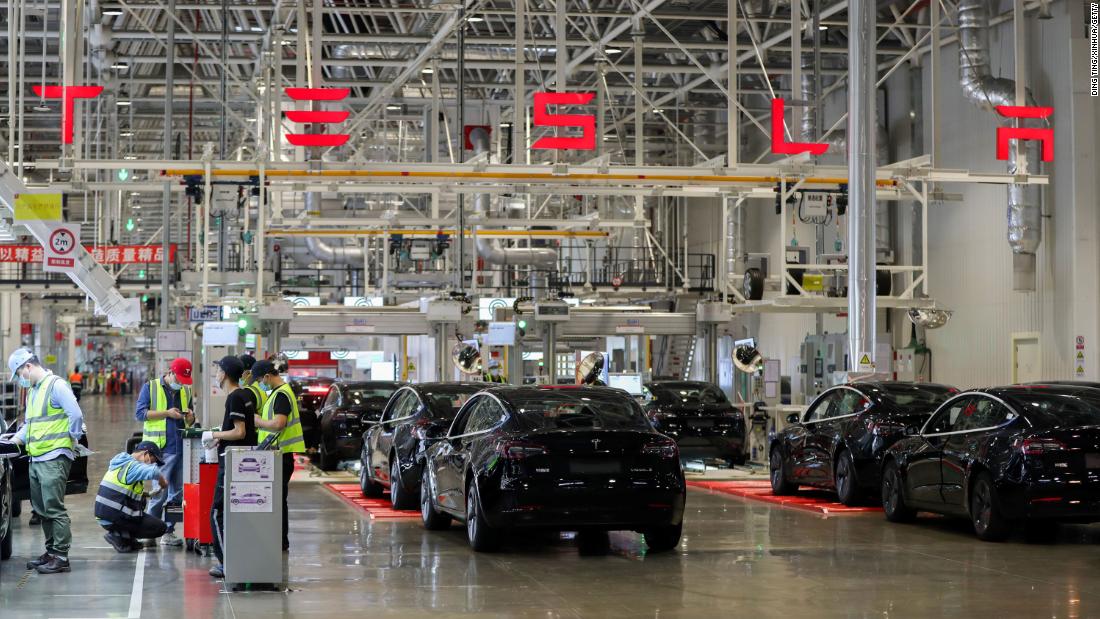The electric carmaker has been summoned by five Chinese regulatory agencies to answer questions about the quality of its Model 3 cars made in Shanghai, according to a statement released Monday by the State Market Regulation Administration (SAMR). He said that regulators were concerned about several problems with cars, including “abnormal acceleration” and “battery fires”.
But in recent weeks, Tesla has been heavily criticized in China for a series of problems involving their cars, culminating in Monday’s announcement.
“[We will] reflect deeply on the company’s operational shortcomings and comprehensively strengthen self-inspection, “said Tesla in a statement posted on the Chinese social media website Weibo in response to SAMR comments.
“We will strictly follow Chinese laws and regulations and will always respect consumer rights,” said the automaker, adding that “it will better contribute to the healthy development of China’s new energy vehicle market”.
It is not clear whether regulators intend to punish Tesla or change anything about how it operates in the country. But the controversy is a sign of how seriously Beijing takes regulation, even among the companies it seems to favor.
“It’s a slippery slope for Musk,” said Dan Ives, a technology analyst at Wedbush Securities. The CEO “built solid relationships within the country, but it should play well in the sandbox in China”.
Strong support
Tesla has been in China since 2013, but in recent years he has established a strong relationship with the Chinese government.
When the automaker was negotiating terms with the authorities in 2017 for the construction of its Shanghai Gigafactory, it was able to maintain full control – an unusual arrangement, since its peers were normally required to partner with Chinese companies if they wanted to open a local business at that time. (China announced in 2018 that it would relax the automotive sector’s rules on foreign ownership by 2022.)
A bitter perception
“We deeply regret, regarding the misunderstanding caused to Internet users and the problems” caused to the authorities in power, the company said.
The Global Times, a state tabloid, also criticized the company.
Other challenges
Regulatory pressure is not Tesla’s only challenge in advancing China.
The company was the best-selling electric vehicle brand in the country last year, with 135,400 models 3 sold, according to the China Passenger Car Association.
But the competition is getting fierce. BYD overthrew Tesla as China’s best-selling electric car brand last month, and other automakers like Nio, Geely and Xpeng are trying to close it.
Although China has welcomed Tesla so far, experts note that, ultimately, Beijing has its own ambitions to lead in technology and other fields. In other words: since national companies are competitive, the country no longer needs foreign companies.
– CNN’s Beijing office contributed to this report.
